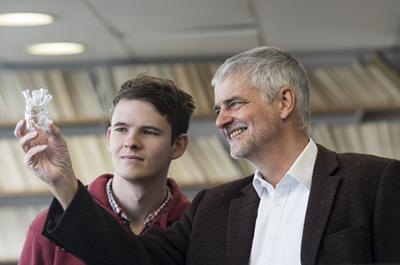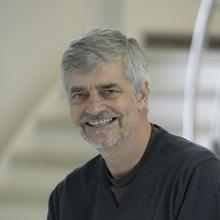Major research grant to investigate exciting new materials at the atomic scale

Southampton electrochemist Professor Phil Bartlett is leading a major new research project to explore innovative and cost-effective ways of using advanced electroplating to deposit and shape technologically important materials at the nanoscale.
A grant of over £6million from the Engineering and Physical Sciences Research Council (EPSRC) will be shared by the Universities of Southampton, Nottingham and Warwick, providing funding for a multidisciplinary team of postdoctoral researchers and PhD students.
“The ADEPT project covers the whole spectrum of research from clean room nanofabrication to industrial collaboration and there is tremendous potential to deliver exciting new materials with many uses through cutting edge electrochemistry,” says Phil.
.jpg_SIA_JPG_fit_to_width_INLINE.jpg)
• Thermoelectric materials are already used in refrigeration but can also be used to generate electricity from waste heat. Reducing the size to tens of atoms across will increase their efficiency but the technology to achieve this does not yet exist.
• Computer memory could be transformed if materials that change electrical resistance by rapid heating and cooling (phase change memory) could be developed on the extreme nanoscale. If ultra-small versions were produced, existing issues with reliability and energy requirements could be resolved.
• Heat sensing devices such as infrared cameras could be used more widely in home security, communications and the Internet of Things if they were cheaper to manufacture.
At Southampton, researchers led by Professors Gill Reid and Andrew Hector in Chemistry, David Smith in Physics and Kees de Groot from Electronics and Computer Science will be working together with Phil to deliver this ambitious project.
